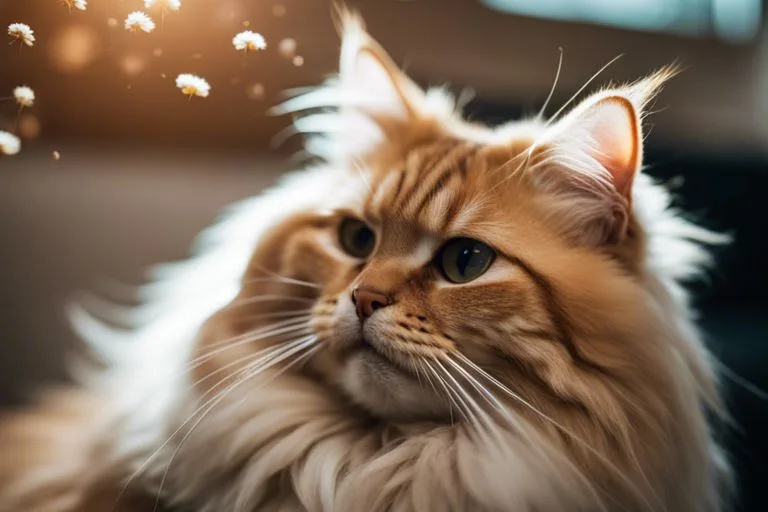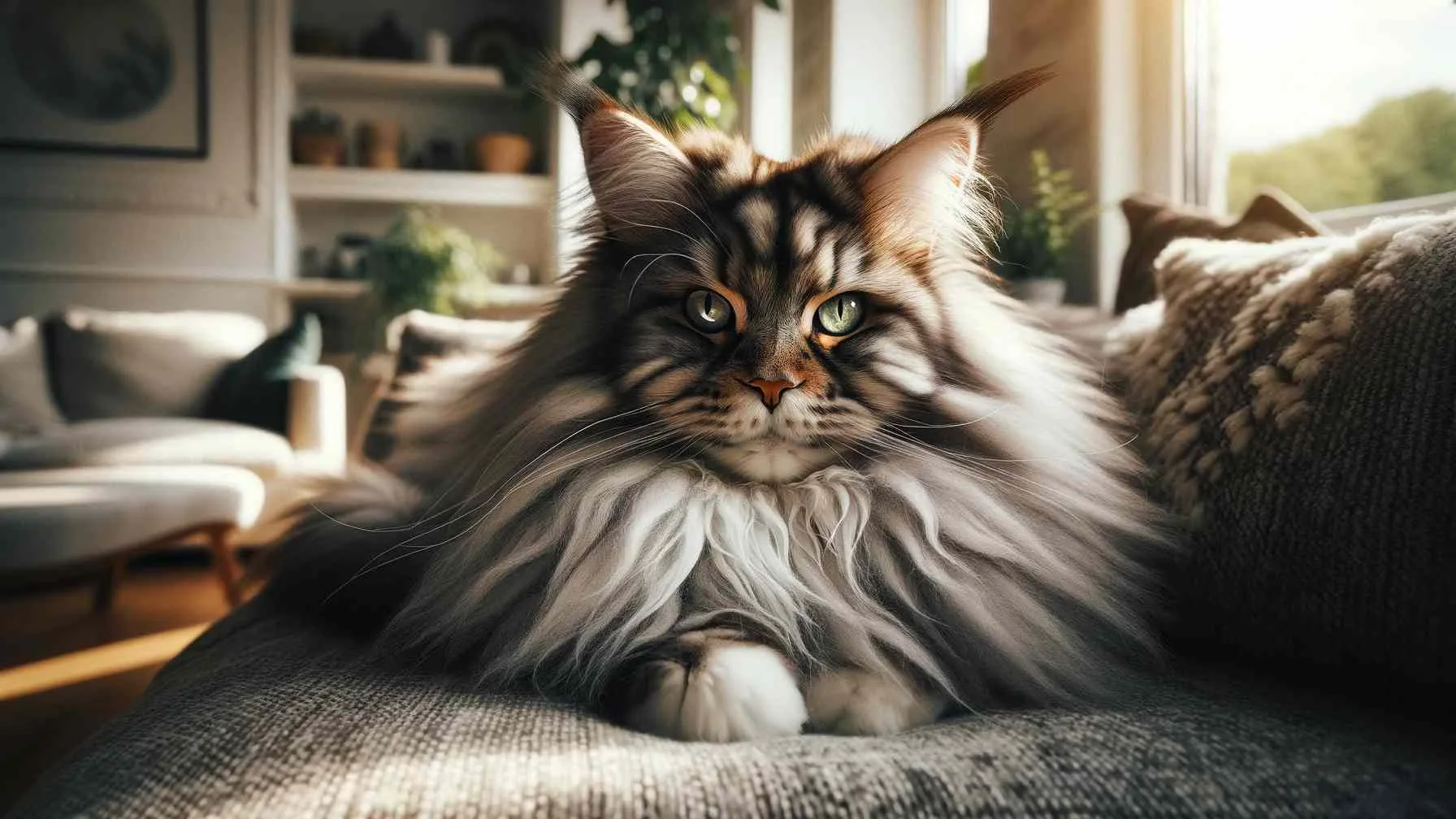Have you noticed your Siberian cat’s nose sneezing more frequently than usual? If so, it may be a sign of allergies. While Siberian cats are known for their hypoallergenic qualities, they can still develop allergies to certain environmental factors or allergens in their food. Pay attention to consistent sneezing, watery eyes, and nasal discharge as these could be indicators of an allergic reaction. It’s important to get your cat evaluated by a vet to determine the cause of their symptoms and provide the appropriate treatment. In this blog post, we will discuss the potential causes of allergies in Siberian cats and what steps you can take to help alleviate their discomfort.
Key Takeaways:
- Sneezing in Siberian Cats: Sneezing can be a sign of allergies in Siberian cats, but it can also be a symptom of other health issues, so it’s important to monitor your cat closely.
- Allergy Testing: If you suspect that your Siberian cat is suffering from allergies, it’s important to consult with a veterinarian to determine the underlying cause and receive proper testing and diagnosis.
- Environmental Triggers: Allergies in Siberian cats can be triggered by various environmental factors such as pollen, dust, mold, and certain foods, so it’s important to identify and minimize exposure to these allergens.
- Treatment Options: Once the underlying cause of your Siberian cat’s allergies is identified, your veterinarian can recommend a treatment plan which may include medication, dietary changes, or environmental modifications.
- Regular Veterinary Care: It’s important to schedule regular check-ups for your Siberian cat to monitor their overall health and address any allergy-related issues promptly.
Anatomy of a Siberian Cat’s Nose
Some Siberian cat owners may be concerned about their cat’s nose sneezing and wonder if it’s a sign of allergies. Understanding the anatomy of a Siberian cat’s nose can help you better comprehend potential issues and take proper care of your beloved pet. For more information on sneezing in cats and kittens, you can also read this article Sneezing in Cats and Kittens.
The Structure and Function
The Siberian cat’s nose is a complex organ that serves both olfactory and respiratory functions. The external part of the nose, called the nares, allows your cat to smell different scents in the environment. Inside the nasal passages, there are tiny structures called turbinates that help warm and humidify the air your cat breathes. Additionally, these turbinates function to filter out dust and other particles, protecting your cat’s respiratory system.
Common Nasal Issues in Cats
As a Siberian cat owner, you should be aware of common nasal issues that can affect your pet. Some breeds, including Siberian cats, are prone to respiratory infections which can cause nasal discharge and sneezing. Allergies to pollen, dust, or certain foods can also lead to nasal symptoms in cats. It’s important to monitor your cat for any changes in their breathing or sneezing patterns, as prolonged or severe nasal issues could indicate a more serious underlying condition. If you notice any abnormalities, you should consult with your veterinarian to ensure your cat receives the proper care and treatment.
Identifying Allergies in Siberian Cats
Obviously, if your Siberian cat is experiencing frequent sneezing, nasal discharge, or itching, chances are they may be suffering from allergies. However, it’s important to identify the specific allergen causing these symptoms in order to effectively manage your cat’s condition. Understanding the types of allergens that can affect Siberian cats and recognizing the symptoms and diagnosis of allergies are crucial in providing the best care for your feline friend.
Types of Allergens
When it comes to Siberian cats, common allergens that can trigger allergic reactions include pollen, mold, dust mites, and certain foods. Additionally, chemicals in household cleaning products, as well as cigarette smoke, and perfumes can also act as allergens for your cat. The exposure to these allergens can lead to inflammation of the nasal passages and respiratory system. The allergic response in Siberian cats can present itself with sneezing, coughing, and runny nose. The table below summarizes the potential allergens that may affect your Siberian cat.
| Pollen | Mold |
| Dust Mites | Foods |
| Cleaning Products | Cigarette Smoke |
| Perfumes | – |
| – | – |
Symptoms and Diagnosis
Identifying the symptoms of allergies in your Siberian cat is essential for seeking proper treatment. Common symptoms include itching, excessive grooming, sneezing, coughing, sniffling, and watery eyes. If you notice any of these symptoms in your cat, it’s important to consult your veterinarian for a proper diagnosis. Your vet may perform skin or blood tests to determine the specific allergen triggering the allergic response, allowing for targeted treatment. The sooner you can pinpoint the allergen affecting your cat, the quicker you can provide the necessary relief.
Treatment and Management
Despite your best efforts to keep your Siberian cat away from potential allergens, your pet may still experience sneezing and nasal discharge. Fortunately, there are several treatment and management options available to help alleviate your cat’s symptoms and keep them comfortable.
Managing Allergies at Home
If your Siberian cat is experiencing sneezing or nasal discharge, there are steps you can take at home to help manage their allergies. Keep your home environment clean and free from dust, pollen, and other potential allergens. Use an air purifier to help remove allergens from the air, and consider using a HEPA filter in your home’s ventilation system. Additionally, regular grooming and bathing can help remove allergens from your cat’s fur, reducing their exposure to potential triggers.
When to Seek Veterinary Care
If your Siberian cat’s sneezing and nasal discharge persist despite your efforts to manage their allergies at home, it may be time to seek veterinary care. Persistent sneezing and nasal discharge can be a sign of a more serious underlying health issue, such as a respiratory infection or sinus problem. Additionally, if you notice any changes in your cat’s behavior or appetite, it’s important to seek veterinary care as soon as possible. Your veterinarian can provide a thorough evaluation of your cat’s symptoms and recommend an appropriate treatment plan to address their allergies.
Preventative Measures
To prevent allergies in your Siberian cat, it’s important to take some preventative measures. Identifying and eliminating allergens from your cat’s environment can help reduce the frequency and severity of allergic reactions. Top 7 Allergens That Could Be Causing Your Cat’s Allergies can be a good place to start to identify potential allergens that could be affecting your cat’s health.
Allergy-proofing Your Home
One of the most important steps in preventing allergies in your Siberian cat is to allergy-proof your home. This includes investing in a good air purifier to remove airborne allergens, regularly vacuuming and cleaning your house to reduce allergen exposure, and washing your cat’s bedding and toys frequently. Keep your cat away from potential allergens such as cigarette smoke, dust, and mold to minimize the risk of allergies.
Regular Health Checks and Vaccinations
Regular health checks and vaccinations are essential for maintaining your Siberian cat’s overall well-being. Your veterinarian can help identify any potential health issues or allergies early on and provide the necessary vaccinations to protect your cat from common allergens. Additionally, a well-maintained vaccination schedule can help boost your cat’s immune system and reduce the risk of developing allergies.
Is Your Siberian Cat’s Nose Sneezing A Sign Of Allergies?
Summing up, if you have a Siberian cat and notice that their nose is sneezing, it may be a sign of allergies. Keep an eye on any other symptoms your cat may be experiencing, such as watery eyes or excessive scratching, and consult with your veterinarian for an accurate diagnosis. It’s important to address any potential allergies to ensure your cat is comfortable and healthy. For more information on cat sneezing causes and treatment, visit Cats Sneezing: Causes & Treatment.
FAQ
Q: Is my Siberian cat’s sneezing a sign of allergies?
A: Sneezing in Siberian cats can be a sign of allergies, but it can also be caused by other factors such as dust, pollen, or a viral infection. If your cat is sneezing frequently or showing other signs of allergies, it’s best to consult with a veterinarian for a proper diagnosis.
Q: What are the common symptoms of allergies in Siberian cats?
A: Common symptoms of allergies in Siberian cats include sneezing, coughing, itching, watery eyes, and skin irritation. Allergies can be triggered by various factors such as food, pollen, dust, or mold. It’s important to monitor your cat’s behavior and symptoms and seek veterinary advice if you suspect they are suffering from allergies.
Q: How can I help my Siberian cat with allergies?
A: To help your Siberian cat with allergies, it’s important to identify and eliminate the allergen that is causing the reaction. This may involve changing their diet, keeping them away from potential allergens, or using medication prescribed by a veterinarian. Additionally, maintaining a clean living environment and grooming your cat regularly can also help alleviate allergy symptoms.



